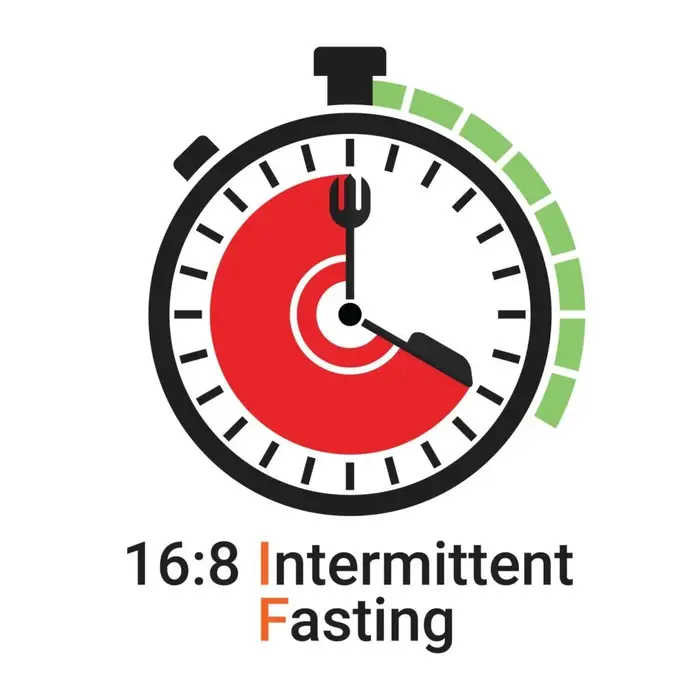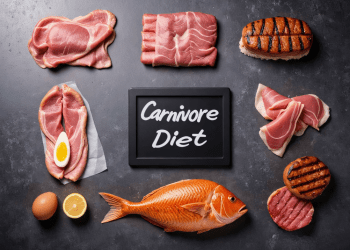Intermittent fasting is an eating pattern that cycles between periods of fasting and eating. It has gained popularity in recent years, but it is not a new concept. Fasting has been practiced for centuries for various reasons, including religious, cultural, and health purposes. There are different types of intermittent fasting, and we will discuss them in this article.
Intermittent Fasting Methods
Intermittent fasting is an increasingly popular method of weight loss and improved health. In this section, we’ll delve deeper into the different methods of intermittent fasting, how it affects your cells and hormones, and its powerful weight loss benefits.
We’ll also explore the various health benefits that come with intermittent fasting, including how it can make your healthy lifestyle simpler. So, let’s take a closer look at the science behind intermittent fasting and how it can help you achieve your health and fitness goals.
What Is Intermittent Fasting (IF)?
Intermittent fasting involves restricting food intake for a specific period, followed by a period of normal eating. There are several methods of intermittent fasting, including:
- 16/8 Method: This involves skipping breakfast and restricting the eating window to 8 hours, followed by a 16-hour fast.
- 5:2 Diet: This involves eating normally for five days and restricting calorie intake to 500-600 for the other two days.
- Eat-Stop-Eat: This involves fasting for 24 hours, once or twice a week.
- Alternate-Day Fasting: This involves fasting every other day, followed by a normal eating day.

How It Affects Your Cells and Hormones
Intermittent fasting affects your cells and hormones in various ways. It increases autophagy, which is the process of cells breaking down and recycling old or damaged proteins. This leads to cellular repair and regeneration. Intermittent fasting also reduces insulin levels, which can lower the risk of developing type 2 diabetes. It also increases the production of human growth hormone, which can aid in muscle growth and fat loss.
A Very Powerful Weight Loss Tool
Intermittent fasting is a powerful weight loss tool. When you fast, your body burns stored fat for energy, which leads to weight loss. It also reduces calorie intake, as you are eating fewer meals. A study found that intermittent fasting led to an average weight loss of 7-11 pounds in 10 weeks.
Health Benefits
- Intermittent fasting has several health benefits, including:
- Improved insulin sensitivity
- Lowered blood pressure
- Reduced inflammation
- Reduced oxidative stress
- Improved heart health
Additional Information
In the previous section, we discussed the various methods and benefits of intermittent fasting. However, before deciding whether to incorporate intermittent fasting into your lifestyle, there are some additional factors to consider.
In this section, we will explore some important additional information about intermittent fasting, including what you can eat and what you can’t, the level of effort required, and potential safety concerns. By the end of this section, you’ll have a better understanding of what to expect if you choose to try intermittent fasting.
Makes Your Healthy Lifestyle Simpler
Intermittent fasting makes your healthy lifestyle simpler. You don’t have to worry about counting calories or following a strict diet plan. You can eat your favorite foods during the eating window, as long as you are mindful of portion sizes.
Who Should Be Careful Or Avoid It?
Intermittent fasting is not suitable for everyone. People who are underweight, pregnant, or breastfeeding should avoid it. People with a history of eating disorders or those taking medication should also consult their doctor before trying intermittent fasting.
Should Women Fast?
Women can fast, but they may need to modify their approach. Studies have shown that women may have more difficulty with intermittent fasting than men. Women should start with shorter fasting periods and gradually increase them.
Safety and Side Effects
Intermittent fasting is generally safe for healthy adults. However, some people may experience side effects, such as:
- Hunger
- Headaches
- Irritability
- Fatigue
- Dizziness
Assessment of Intermittent Fasting
After delving into the various methods and benefits of intermittent fasting, it’s important to take a closer look at its effectiveness and practicality. In this section, we’ll assess the promises and potential pitfalls of intermittent fasting, including what to eat and what to avoid, the level of effort required, and whether it’s suitable for certain conditions or individuals.
By understanding the assessment of intermittent fasting, you can make an informed decision about whether this eating pattern is right for you.
The Promise
Intermittent fasting has promised several health benefits, including weight loss and improved health markers. It is a flexible and straightforward way to improve your health and lose weight.
What You Can Eat and What You Can’t
Intermittent fasting doesn’t restrict what you can eat. However, focusing on healthy, whole foods during the eating window is essential. Avoid processed and junk foods, as they are high in calories and low in nutrients.
Overcoming Challenges: Tips for Making Intermittent Fasting Easier to Follow
Intermittent fasting can be difficult for some people to follow, especially at the beginning. This is because it involves a significant change in eating patterns and can take some time to adjust to. Additionally, some people may experience hunger, fatigue, or irritability during fasting.
However, once someone gets used to the fasting routine, it can become easier and more natural. It’s important to listen to your body and not push yourself too hard. Some people find it helpful to start with a shorter fasting period and gradually increase the duration as they become more comfortable.
Customizing Intermittent Fasting to Fit Your Dietary Needs and Preferences
Intermittent fasting can be adapted to fit many different dietary restrictions and preferences. For example, vegetarians and vegans can still practice intermittent fasting while following their chosen diet. Additionally, it can be modified to include or exclude certain foods depending on personal preference.
What Else You Should Know
It’s important to consult with a healthcare professional before starting any new diet or exercise routine, including intermittent fasting. This is especially important for people with pre-existing medical conditions or who are taking medications.
Intermittent fasting should also not be used as an excuse to binge eat or overindulge during the non-fasting periods. Making healthy food choices and maintaining a balanced diet are still important.
Does It Work?
There is evidence to suggest that intermittent fasting can be an effective weight loss tool and may also have other health benefits. However, it may not be suitable for everyone and should be approached with caution.
It’s important to remember that weight loss is not the only measure of success and that overall health and well-being should be the primary goal. Intermittent fasting should be viewed as one tool in a larger toolkit for achieving and maintaining a healthy lifestyle.
Is Intermittent Fasting Safe for Everyone? Factors to Consider Before Starting
Intermittent fasting may be beneficial for some conditions, such as type 2 diabetes, but it may not be suitable for everyone. People with certain medical conditions, such as eating disorders, should not practice intermittent fasting.
It’s important to discuss any concerns with a healthcare professional before starting intermittent fasting or any other dietary or exercise program.
The Final Word
Intermittent fasting is a popular and potentially effective weight loss tool that may also have other health benefits. However, it may not be suitable for everyone and should be approached with caution. It’s important to consult with a healthcare professional before starting any new diet or exercise routine and to prioritize overall health and well-being.
Overall, intermittent fasting can be a useful addition to a healthy lifestyle but should not be viewed as a quick fix or a one-size-fits-all solution. With patience, dedication, and guidance from a healthcare professional, it can be an effective tool for achieving and maintaining a healthy weight and lifestyle.
Frequently Asked Questions
Q: What is Intermittent Fasting?
A: Intermittent Fasting (IF) is an eating pattern that cycles between periods of fasting and eating.
Q: How does Intermittent Fasting work?
A: During fasting periods, the body is forced to burn stored fat for energy, which can lead to weight loss. Additionally, Intermittent Fasting has been shown to have a positive impact on cellular and hormonal health.
Q: What are the different types of Intermittent Fasting?
A: The most popular types of Intermittent Fasting include the 16/8 method, the 5:2 diet, and alternate-day fasting.
Q: Does Intermittent Fasting help with weight loss?
A: Yes, Intermittent Fasting can be a powerful weight loss tool, as it can help the body burn stored fat for energy.
Q: What are the health benefits of Intermittent Fasting?
A: Intermittent Fasting has been shown to have numerous health benefits, including improved blood sugar control, reduced inflammation, and a lower risk of chronic diseases.
Q: What can you eat during Intermittent Fasting?
A: During the eating periods, it is recommended to eat healthy, whole foods, and to avoid processed foods and excessive sugar.
Q: Is Intermittent Fasting safe?
A: While Intermittent Fasting can be safe for most people, it is important to consult with a healthcare professional before starting a new diet or eating pattern.
Q: How long should I fast for with Intermittent Fasting?
A: The length of the fasting periods can vary depending on the specific Intermittent Fasting method being used, but typically range from 12 to 24 hours.
Q: Can Intermittent Fasting be done every day?
A: Yes, Intermittent Fasting can be done every day, but it is important to listen to your body and ensure that you are getting enough nutrients and energy to support your health and well-being.
Q: Is Intermittent Fasting right for everyone?
A: Intermittent Fasting may not be suitable for everyone, especially those with certain medical conditions or who are pregnant or breastfeeding. It is important to consult with a healthcare professional before starting any new diet or eating pattern.









